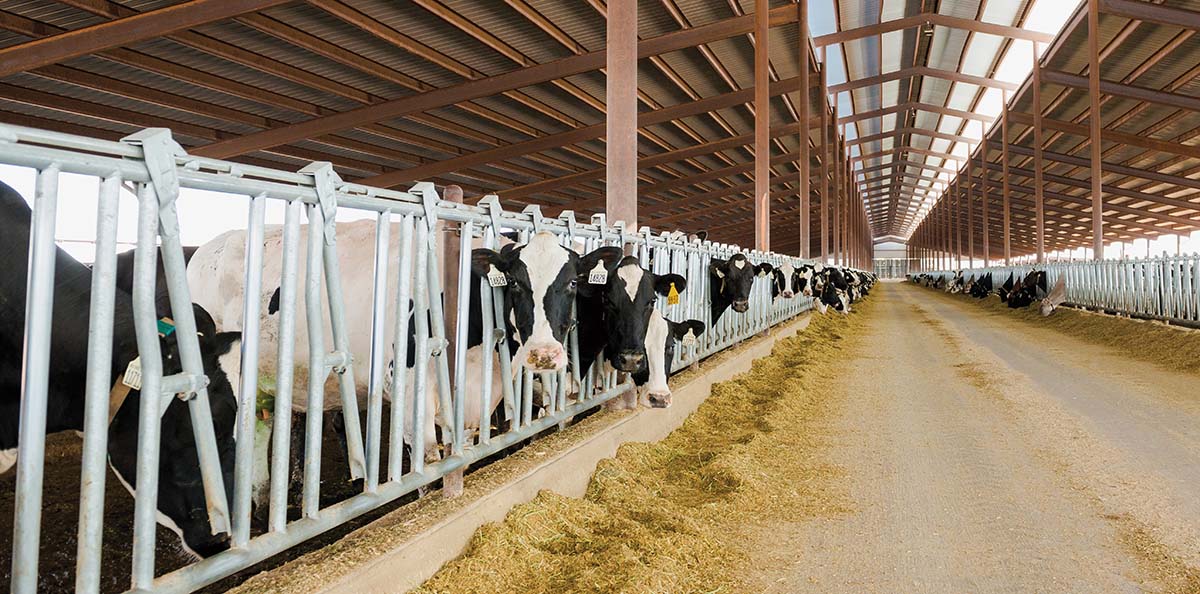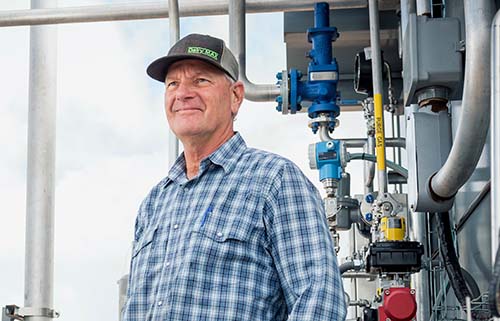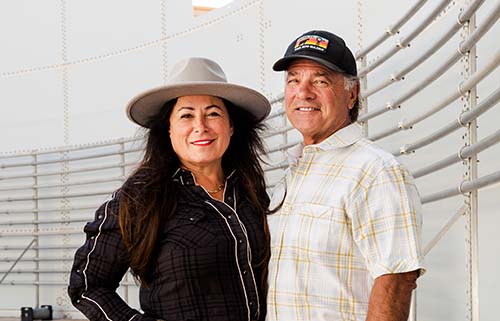
Photo by Shannon Richardson
Manure from these Del Rio Dairy cows will be recycled into renewable energy when the dairy’s anaerobic methane digester goes online in early 2023.
On a dairy, what goes in must come out.
Every day, a milk cow that eats more than 100 pounds of feed produces about the same quantity of manure. That’s a byproduct most people would call worthless.
Not dairy farmers.
Now a growing number of farmers are turning cow waste into renewable energy. Using anaerobic methane digesters, they’re doing their part to help the environment by trapping methane gas before it goes into the atmosphere. That cow gas is then converted into a clean energy source that’s used for heat and electricity, and to power vehicles.
There are other benefits, too. Manure solids are separated and dried to eliminate bacteria and then used in soft animal bedding and rich compost. And separated liquids are applied to crops at appropriate rates, adding nutrients to the soil, reducing the need for commercial fertilizers and optimizing water usage.
Digesters 101
Anaerobic methane digesters simulate a cow’s digestive system. Organic matter goes into a sealed container — such as a covered lagoon or a large tank — that’s void of oxygen and heated to at least 100 degrees.
Costs
The best digester candidates are dairies that already routinely collect their manure, says Daryl Maas with Maas Energy Works.
Cost estimates for a digester and gas-cleaning equipment range from $1,500 to $2,000 per cow. Dairies that build their own digester and share a gas-cleaning facility can lower their costs to $1,200 to $1,500 a cow, Maas reports.
Payback on investments can run from four to 10 years.
Carbon credits
Several U.S. programs offer tradable credits as an incentive to lower greenhouse gas emissions or produce renewable fuels. Dairy digesters can participate in two such programs at the same time.
On the federal level, the Environmental Protection Agency runs the Renewable Fuel Standard (RFS) program, which requires oil refineries annually to make and market a set amount of renewable transportation fuels. Under the program, dairies can receive a renewable identification number (RIN) for every gallon of renewable natural gas they inject into distribution lines. RINs may be sold to refineries and fuel importers that meet RFS regulations.
At the state level, California has established a program to reduce carbon emissions in vehicle fuels. Called the Low Carbon Fuel Standard, it awards “carbon credits” to fuels that have lower carbon intensity than standard fuels. Basically, one carbon credit represents 1 ton of carbon dioxide not released into the atmosphere. Dairy digesters across the country can acquire credits through the California program for capturing methane and also producing renewable natural gas for use as transportation fuels. Those credits can be sold to industries as a way to offset their emissions.
— Sheryl Smith-Rodgers
Meet two Farm Credit customers who’ve invested in methane digesters on their dairy farms


